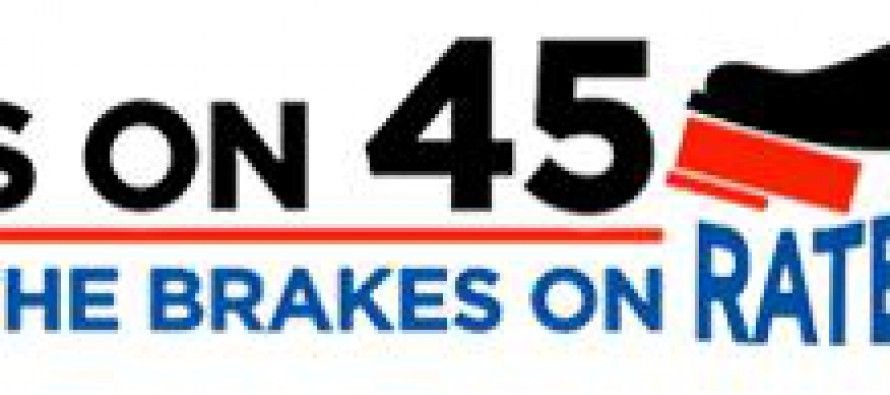Covered CA caught in Prop. 45 crossfire

On Proposition 45, some Democrats are feeling as if they got a transfusion of the wrong blood type. The initiative would give the  state insurance commissioner the power to approve changes in health-insurance policies, including those by Covered California, this state’s implementation of Obamacare.
state insurance commissioner the power to approve changes in health-insurance policies, including those by Covered California, this state’s implementation of Obamacare.
Normally Democrats back more regulation, and plenty support Prop. 45. But it would affect not only private health insurance companies, but Covered California as well. Yet Covered California’s smooth success, unimpeded by state second opinions, is crucial to Obamacare’s national success.
Few have admitted it, but the roots of the conflict ultimately stretched back to the very nature of Covered California’s successful establishment. At a time when other state exchanges, such as Oregon’s, were failing in a way that imperiled Obamacare’s implementation, the success of Covered California had become all-important. Without enough signups, insurers whose products were mandated for purchase under Obamacare couldn’t deliver rates the public would accept.
As a result, Covered California became a crash effort to tap California’s substantial population for exchange signups. Enrollees without adequate paperwork or identification were provisionally allowed into the program. No-bid contracts went out to close associates of Covered California officials, who knew how to leap regulatory hurdles quietly and quickly. Once the publishable number of signups rose high enough, and Obamacare stabilized, the administrative cleanup could begin. A central part of that effort would include revisiting rates negotiated with insurers.
A political curveball
But if passed, Prop. 45 would scramble such planning. Incumbent Insurance Commissioner Dave Jones holds a strong interest in supporting Prop. 45, which would give him new powers if he’s re-elected. He’s running against Republican Ted Gaines, a state senator from Roseville. Gaines opposes Prop. 45 and has challenged Jones to a debate on it.
Embracing Prop. 45 was an apparently safe bet for Jones, who had powerful Democrats in his corner, including both of California’s Democratic U.S. senators, Dianne Feinstein and Barbara Boxer.
Insurance companies, to no one’s surprise, were opposed. The dynamic had all the makings of a predictable election-season matchup if there had been no Covered California.
The current train wreck could have been predicted by observers thinking a few steps ahead. The unsettled scope of Covered California’s regulatory authority teed up a classic bureaucratic turf war of the kind routinely on display in Washington, D.C.
For Covered California officials, it was essential to ensure they could pursue their organization’s agenda unimpeded. That meant establishing direct negotiations with insurance companies themselves — without interference by state-level bureaucrats.
Adding to the administrative jockeying were the implications of the state health exchange itself. Though nominally a market in health care merely established by California through federal law, the exchange inherently politicized the cost of health insurance.
In a free market, for insurance, rates are set by company calculations. In a state-supervised exchange, by contrast, rates become subject to price manipulation based on the imperatives of keeping the exchange economically viable and politically palatable.
Shifting battle lines
From the outset, Prop. 45 threatened to complicate the ability of Covered California officials to independently pursue those imperatives. As the Sacramento Bee reported this summer, at least some influential exchange officials explicitly argued against Prop. 45 on the basis of politics. Diana Dooley, an HHS official who also chairs the board of Covered California, warned against the measure’s provision allowing challenges to rates Covered California negotiated.
For Dooley and her allies, the nightmare scenario involved activist conservatives using the challenge system to undermine trust in Covered California and reduce its efficacy.
But objections to rate-setting without adequate insurance commission oversight have been raised most frequently by Consumer Watchdog, the frequent opponent of large corporations that sponsored Prop. 45 to begin with. Because Covered California officials failed to imagine that anti-corporate sentiment would turn Californians against their plans, they walked into an election-year morass.
The predicament has left opponents of Prop. 45 falling back on a familiar strategy: advocating for additional time before Obamacare is judged wanting. In an editorial dismissing Prop. 45, the Los Angeles Times argued, “Covered California should be given the chance to fulfill its mission to the best of its ability before the state adds another layer of complexity to an already complex process.”
For his part, Jones is remaining adamant in favoring an initiative that would increase his office’s powers. He wrote on his Facebook page, “Vote YES on Prop 45 and make health insurers justify their rates!”
But the split within his own party, combined with plentiful insurance-company ads against the measure, could thwart his wishes.
Related Articles
New stadium scheme rallies NFL in L.A.
In the latest lurch forward for Los Angeles football, NFL Commissioner Roger Goodell has given his blessing to both of
Amb. Bolton warns of Pacific challenges to the U.S.
California and the United States as a whole need to get their act together to face the rising challenges posed
Redevelopment giveaway for Oakley?
AUG. 31, 2010 By KATY GRIMES A small Contra Costa city appears to have an unusual amount of pull in





